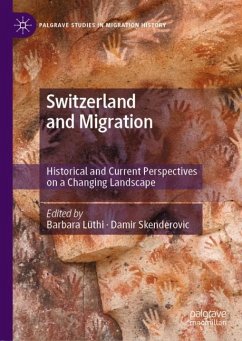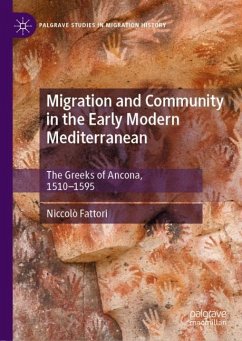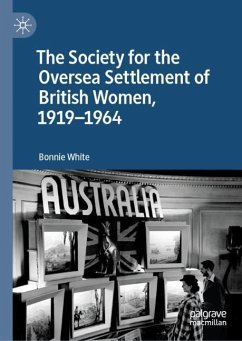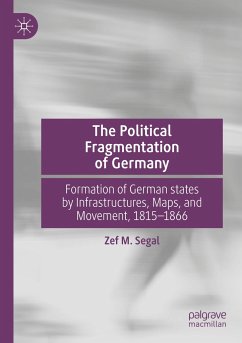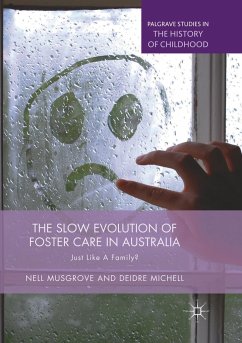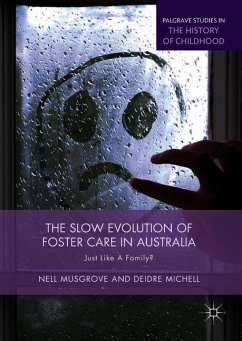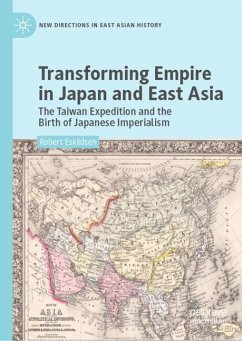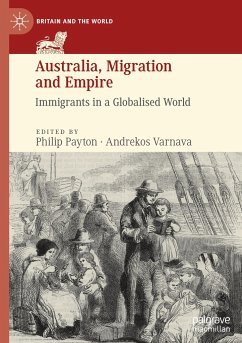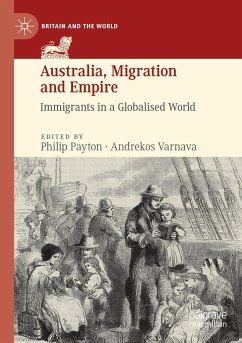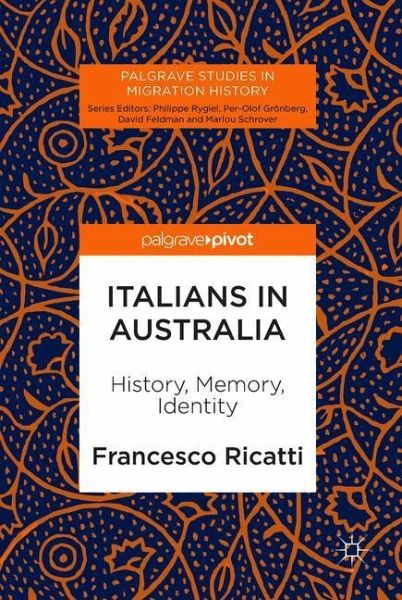
Italians in Australia
History, Memory, Identity

PAYBACK Punkte
23 °P sammeln!
This book provides a concise and innovative history of Italian migration to Australia over the past 150 years. It focuses on crucial aspects of the migratory experience, including work and socio-economic mobility, disorientation and reorientation, gender and sexual identities, racism, sexism, family life, aged care, language, religion, politics, and ethnic media. The history of Italians in Australia is re-framed through key theoretical concepts, including transculturation, transnationalism, decoloniality, and intersectionality. This book challenges common assumptions about the Italian-Australi...
This book provides a concise and innovative history of Italian migration to Australia over the past 150 years. It focuses on crucial aspects of the migratory experience, including work and socio-economic mobility, disorientation and reorientation, gender and sexual identities, racism, sexism, family life, aged care, language, religion, politics, and ethnic media. The history of Italians in Australia is re-framed through key theoretical concepts, including transculturation, transnationalism, decoloniality, and intersectionality. This book challenges common assumptions about the Italian-Australian community, including the idea that migrants are 'stuck' in the past, and the tendency to assess migrants' worth according to their socio-economic success and their alleged contribution to the Nation. It focuses instead on the complex, intense, inventive, dynamic, and resilient strategies developed by migrants within complex transcultural and transnational contexts. In doing so, this book provides a new way of rethinking and remembering the history of Italians in Australia.





